Ending my Big Year with Harlequin Ducks
I hope your year ends in grand fashion and the next begins auspiciously.
On December 28th I decided to end my year with Harlequin Ducks (Histrionicus histrionicus). Histrio means "stage player" in Latin. The male Harlequin Duck’s appearance is akin to a harlequin’s—the bird is named “in honor of the Italian clown.”
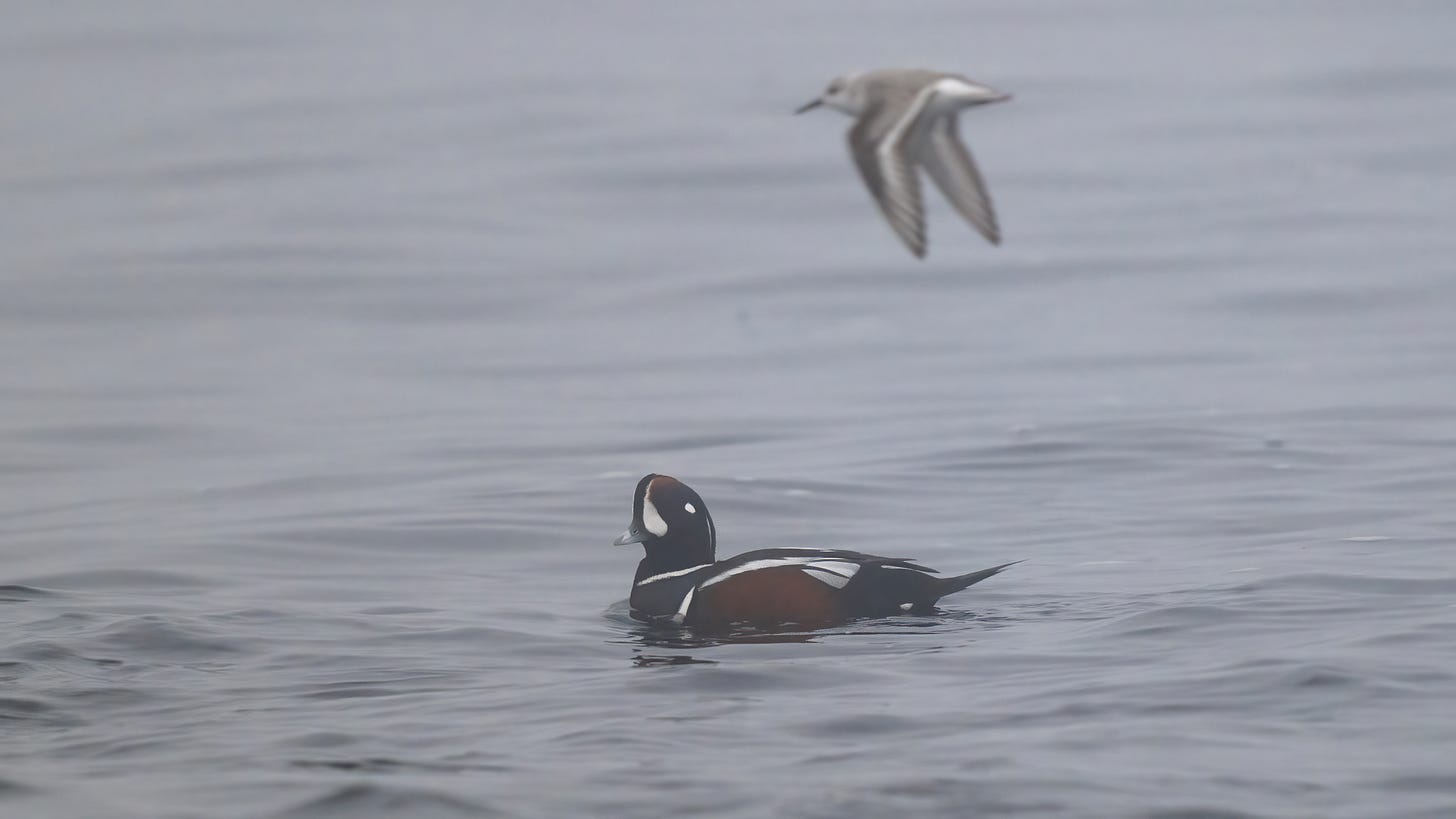
Harlequin Ducks like fast rivers and rough, rocky shorelines. They’re tough little ducks. The Cornell Lab says Harlequin Ducks “suffer more broken bones than any other species…most adults live with multiple healed fractures.”
The Wood Duck (Aix sponsa) is a bird of confounding beauty—what purpose can it possibly serve?—but don’t sleep on Harlequins for comeliness which seems to defy evolutionary justification.
Harlequin Ducks aren’t impossible to find this time of year in New England, but I’d only seen one once, far away, February 26, 2023.
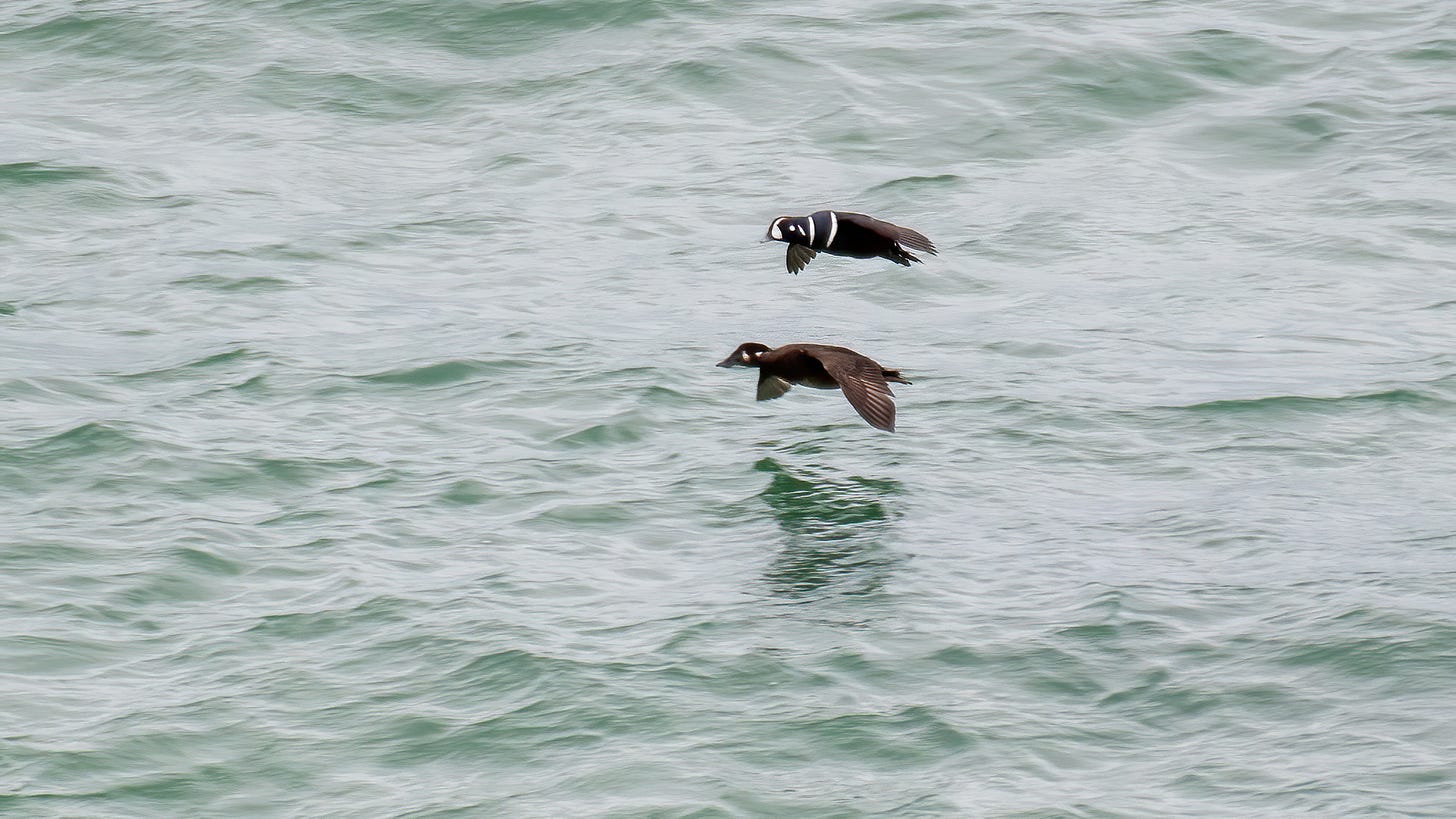


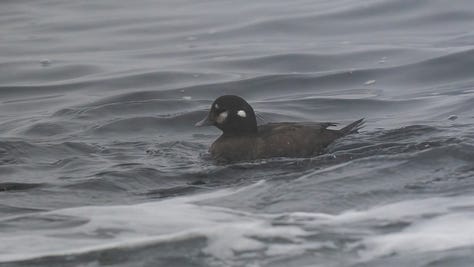
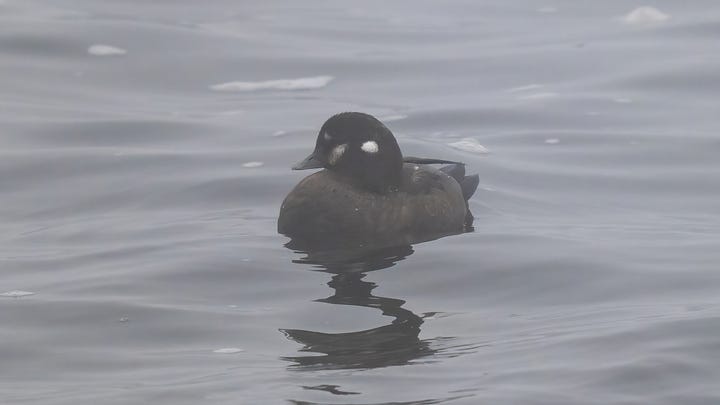

I’d figured all ducks I saw that day were Surf (Melanitta perspicillata) or Black Scoters (Melanitta americana). Later, reviewing photos, I realized one was a male Harlequin.
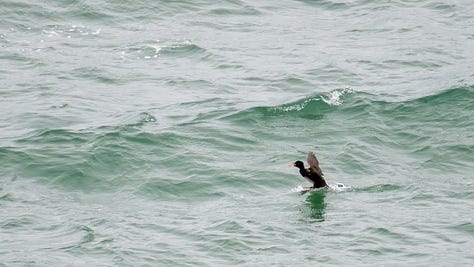
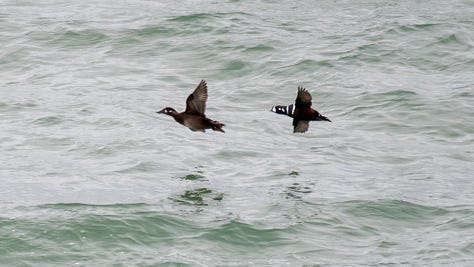
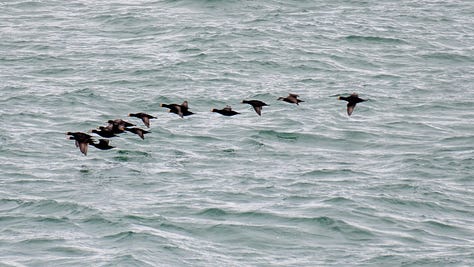
When I want to see a specific bird, it buys lots of real estate in my brain. December 28th, “a Harlequin would be nice” became “I NEED to see a Harlequin Duck.”
The main reason was I hadn’t yet logged one for my big year. I’ve been content with my total for a bit, but wanted to bird to the very end.1 It was also necessary to make a new memory.
, in Bird by Bird, captures why:I have been watching birds for so long that a lot of species are attached to specific memories. I associate many birds with positive experiences, but some fly with my remorse and shame weighing down their wings. I am working on identifying these species in my head, then seeking them out, so that I can redefine our relationships.
I had just one memory of a Harlequin Duck: my first and only encounter. When I thought of them, I thought of it. I wanted a new memory to think about, so made one.
At Halibut Point State Park, Harlequin Ducks are often seen. I’d never been, so wanted to go. It also brought chances of an Iceland Gull (Larus glaucoides), a Dovekie (Alle alle), and a Razorbill (Alca torda).
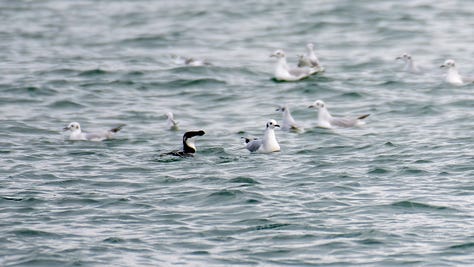
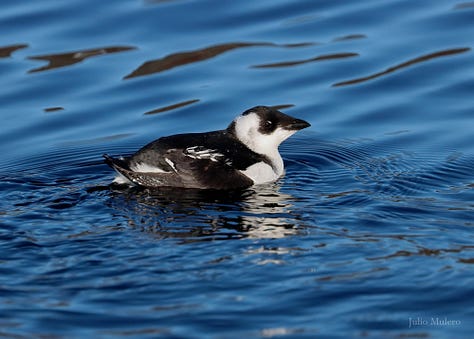
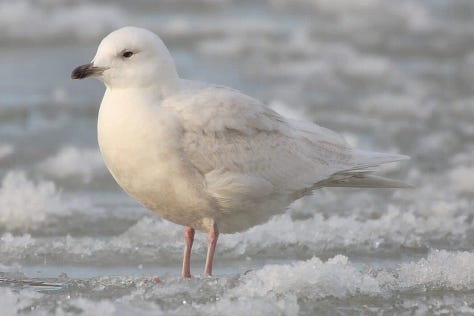
When I awoke at 4:00 on the 29th, the forecast showed rain at 2:00. Morning birds are best, I wouldn’t be birding at 2:00, so no issue. Early bird gets…the birds.
Capitalize on mornings for birds. Starting at 9:00 equates to hours lost. You can still find birds at 11:30, but in my experience the sweet spot is sunrise to 10:00ish.
There was thick fog. On the drive, Google Maps routinely interrupted my music and duck calls to say visibility was bad. Would it be worse at the ocean?
Maybe visibility would be too poor to see Harlequin Ducks at all. Out of precaution I started to plan a return if need be, but was getting ahead of myself.
Rather than plan for the worst, I decided to accept whatever happened and be positive, not overcome by preemptive, potentially unjustified, melancholy. My Harlequin Duck sighting hadn’t been foiled yet—and ultimately wasn’t.
Sunrise the 29th was 7:14. I started birding late, just before 8:00. The walk to the ocean took me past a quarry. Gulls and ducks milled about, but Harlequins like salt.
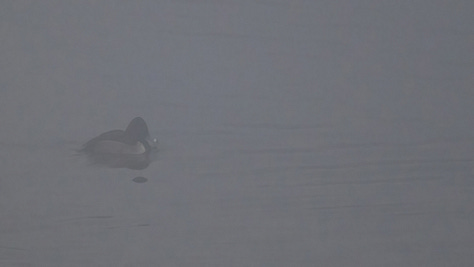
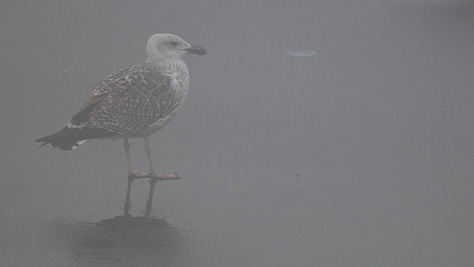
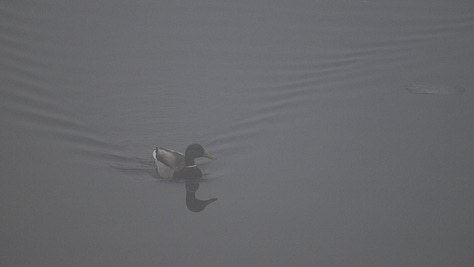
I took photos of Mallards, a Ring-necked Duck, and gulls to see how the camera did in the fog. It did fine, so I walked to the ocean.
Harlequin Ducks were right there. Sketches of New England Birds says many see them as “our most spectacular and elegant waterfowl.” I do. All that worry, but there they were.
I wanted a memory and got a good one. Not only did I see them, but there was quite a build-up. Foggy drive plagued by bad visibility and persistent worry—met by sought-after ducks. A bird is never guaranteed, but Halibut Point proved a safe bet.
I assign meaning to birds. There is something larger than us at work.
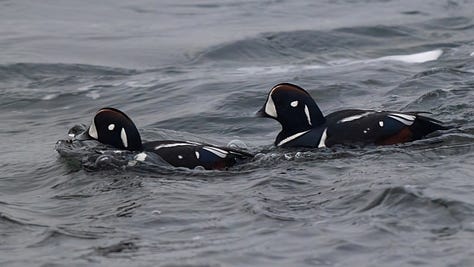
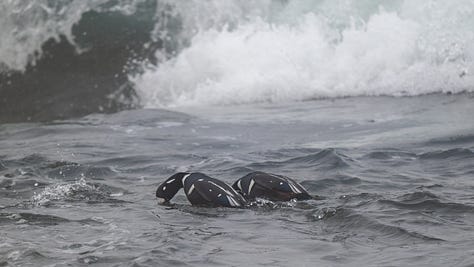

Jeffers’ “wild god of the world” makes sense to me. I look for evidence, but also look for birds. When I find them I often see them as evidence and assign meaning.
When I saw the Harlequin Ducks, it felt as if the wild god was assuring me 2024 was well-spent while ushering in a fortuitous 2025. Birds aren’t there for you, but they’re there for you.
My first memory of Harlequin Ducks was overwritten. As I fretted over non-avian concerns, the wild god urged: Forget all of that for now. Look at these Harlequin Ducks.
The wild god provided, but I also did my part—researched where to go and went. Much as something larger is at work, so are we. It falls to us to do what we can and bring about what we want. It’s not all bigger than us. When things go as hoped, we should think of what we did or didn’t do. When they don't, we should do the same.
My new memory of Harlequin Ducks is richer. It feels earned. The first was unexpected, I didn’t realize I’d seen a Harlequin until after. The encounter gets a C-.
This time gets an A+. They were so close and hung around. I greedily traversed slick rocks and almost fell in pursuit of foggy duck photos. You know an encounter is good when you get greedy and almost fall.
I’ve been riding high ever since.
If you are already a paying subscriber to Rock & Hawk, I am grateful for your support.
If you enjoy my writing and photography but don’t subscribe, please consider becoming a free or paid subscriber. If you are already a free subscriber, please consider upgrading your subscription.
If you don’t wish to subscribe, you can make a one-time contribution through Buy Me A Coffee.
I birded this morning, December 31, so I did.







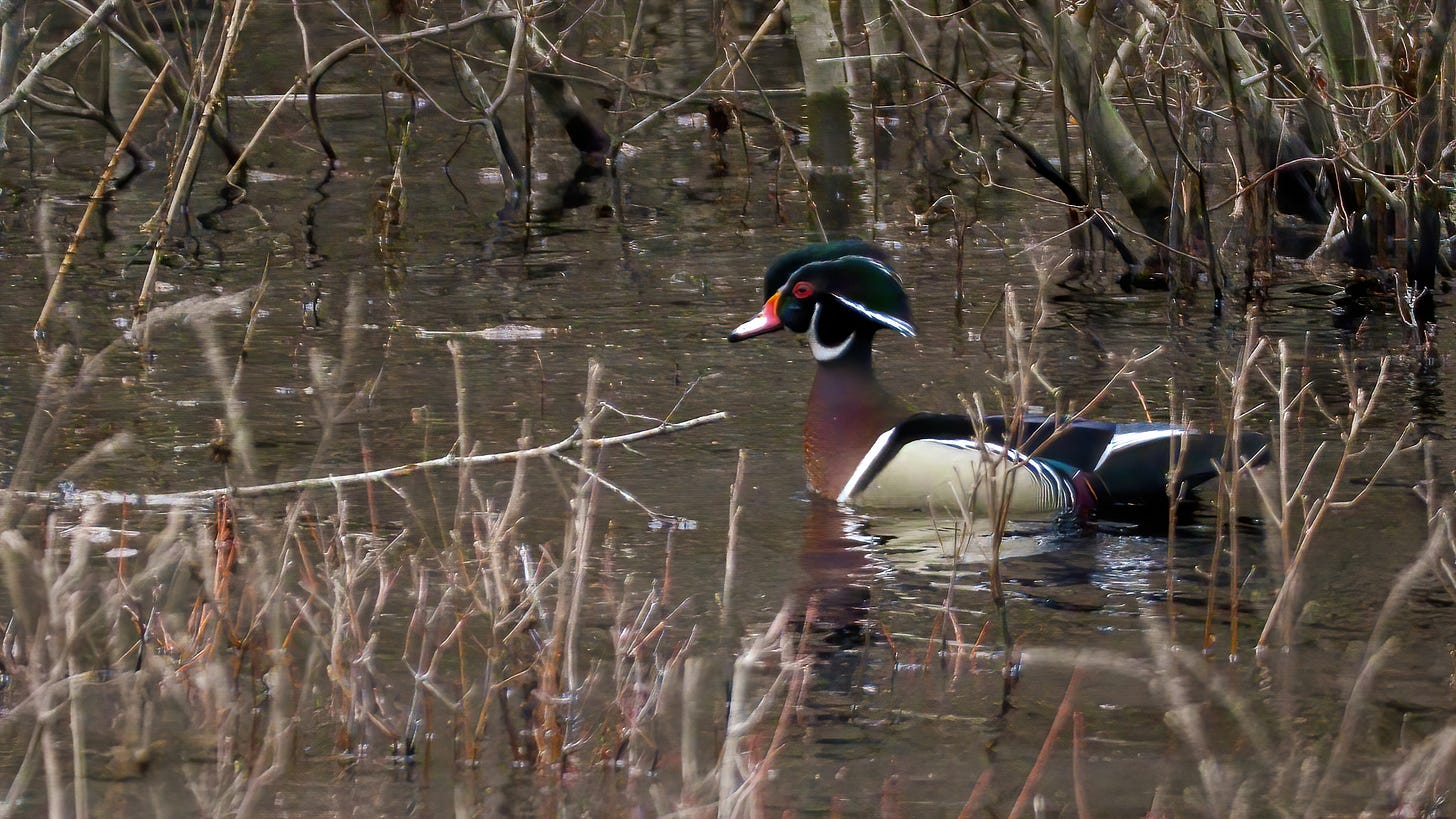


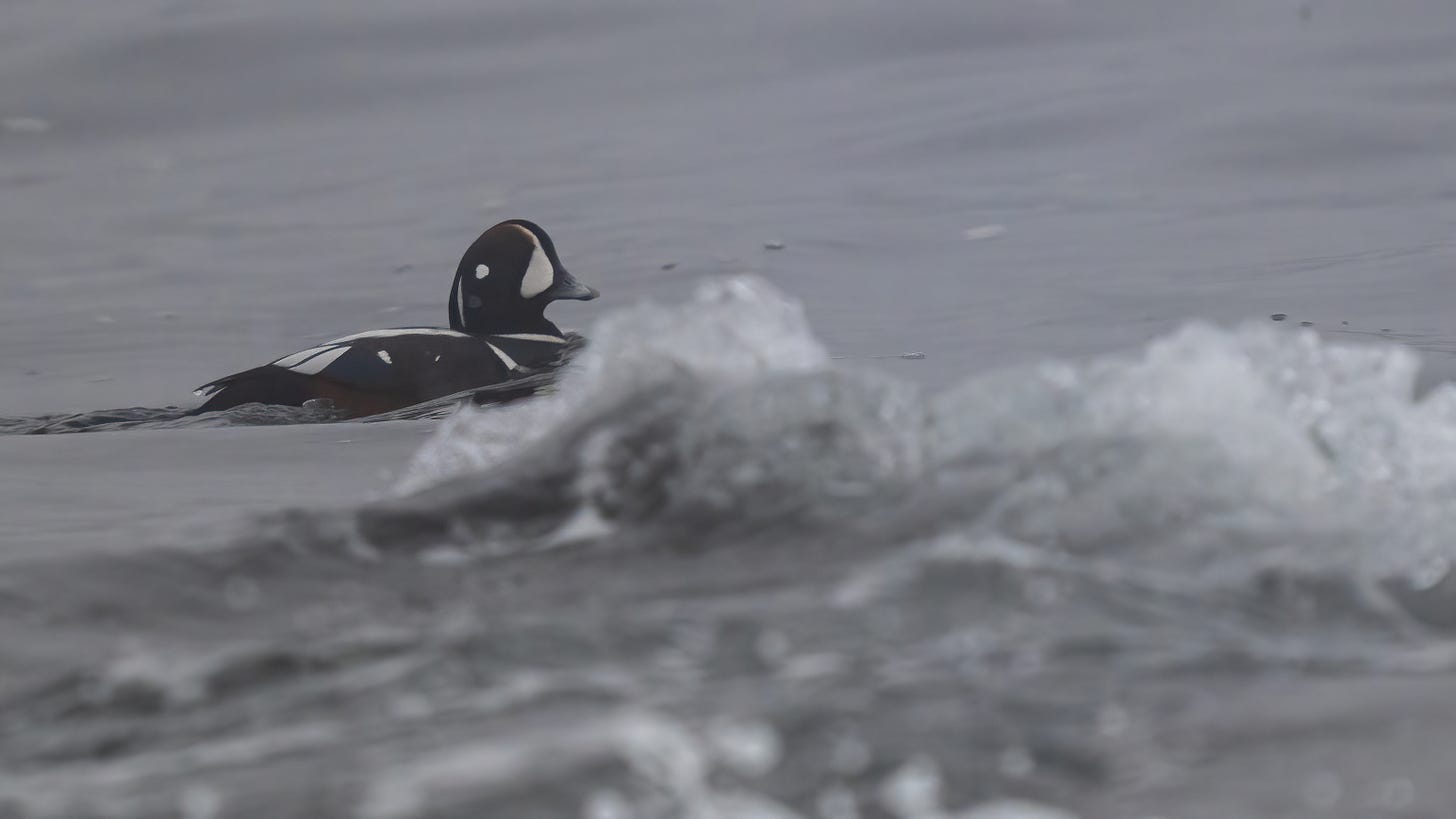

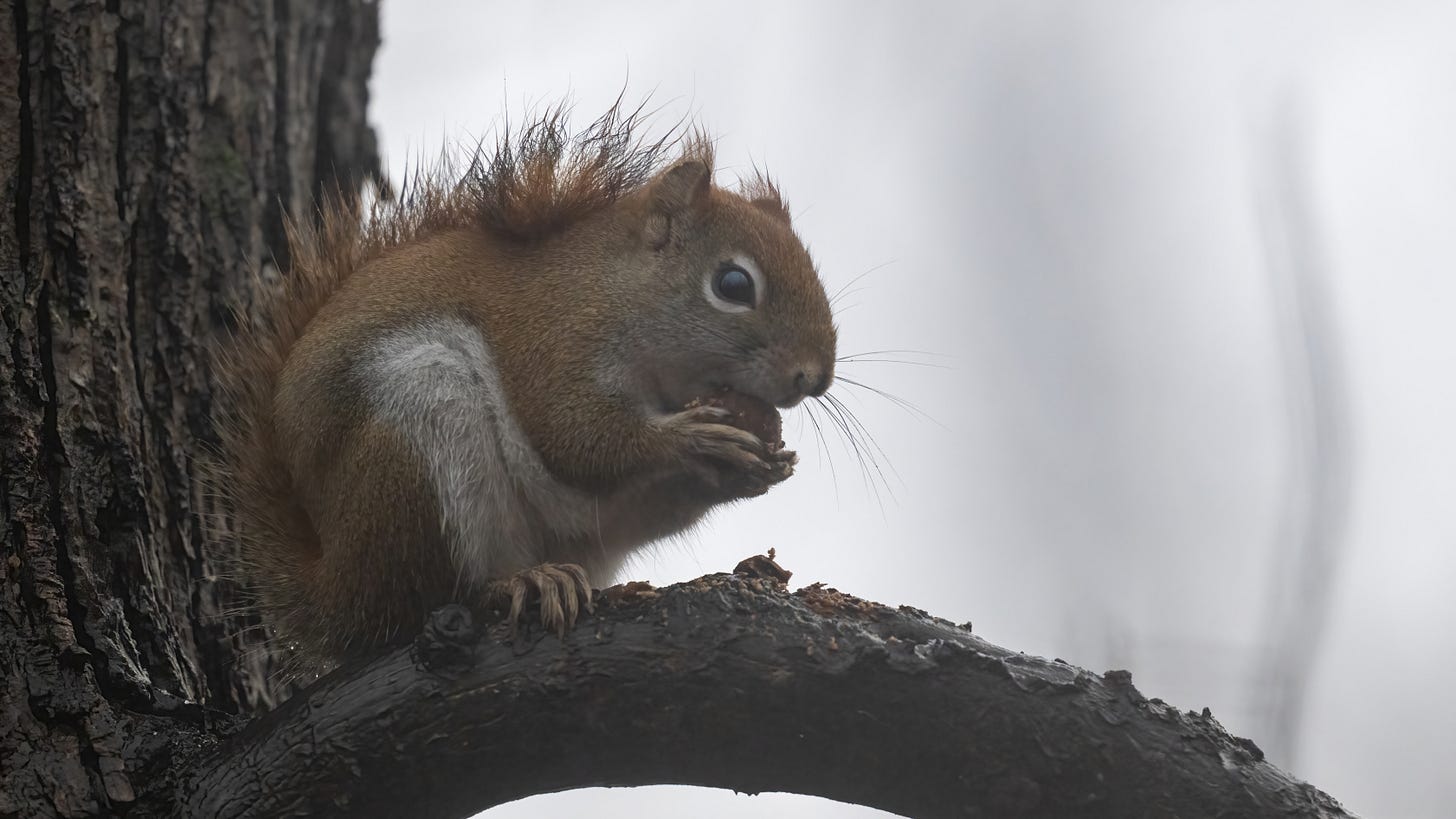


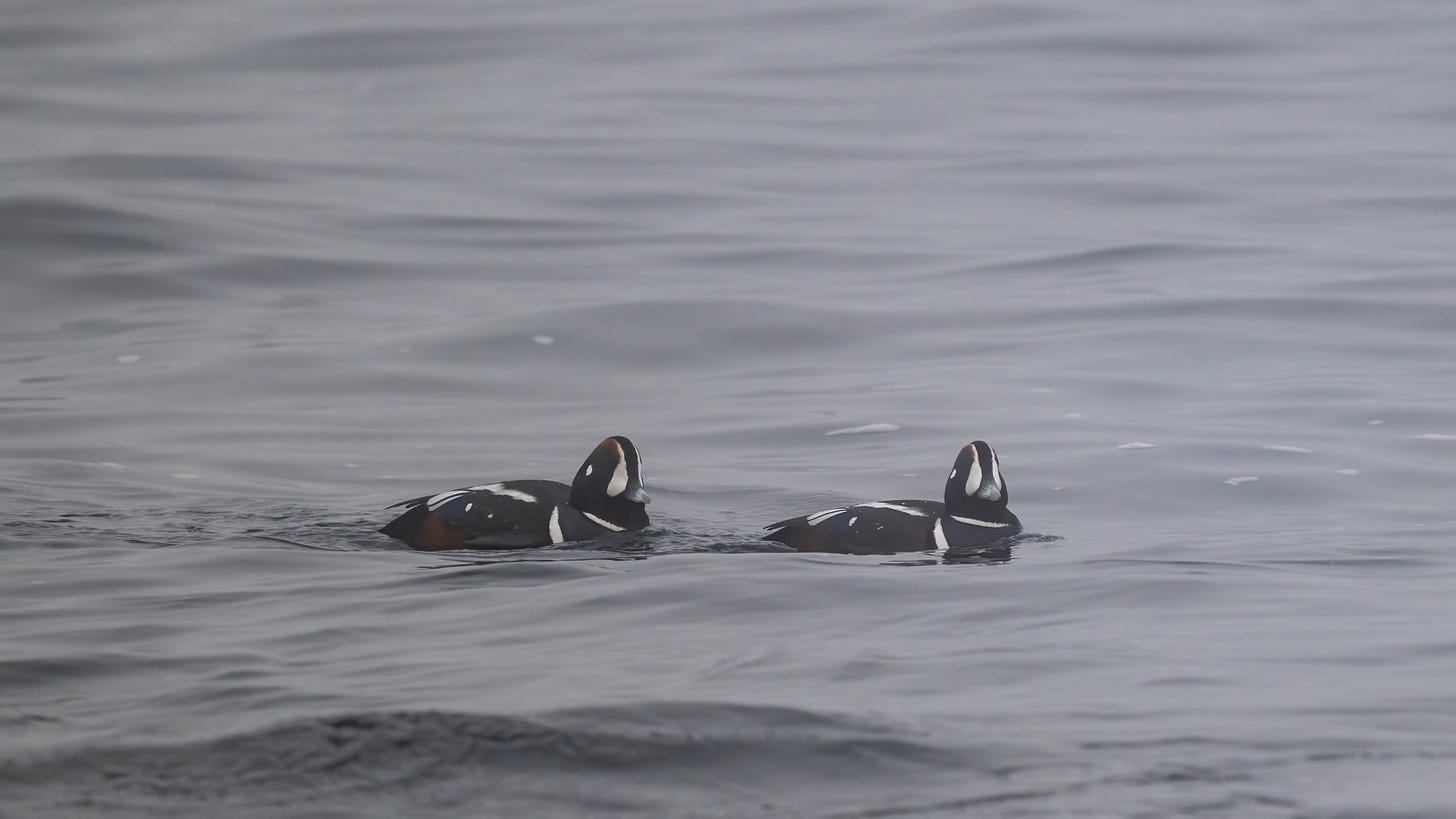

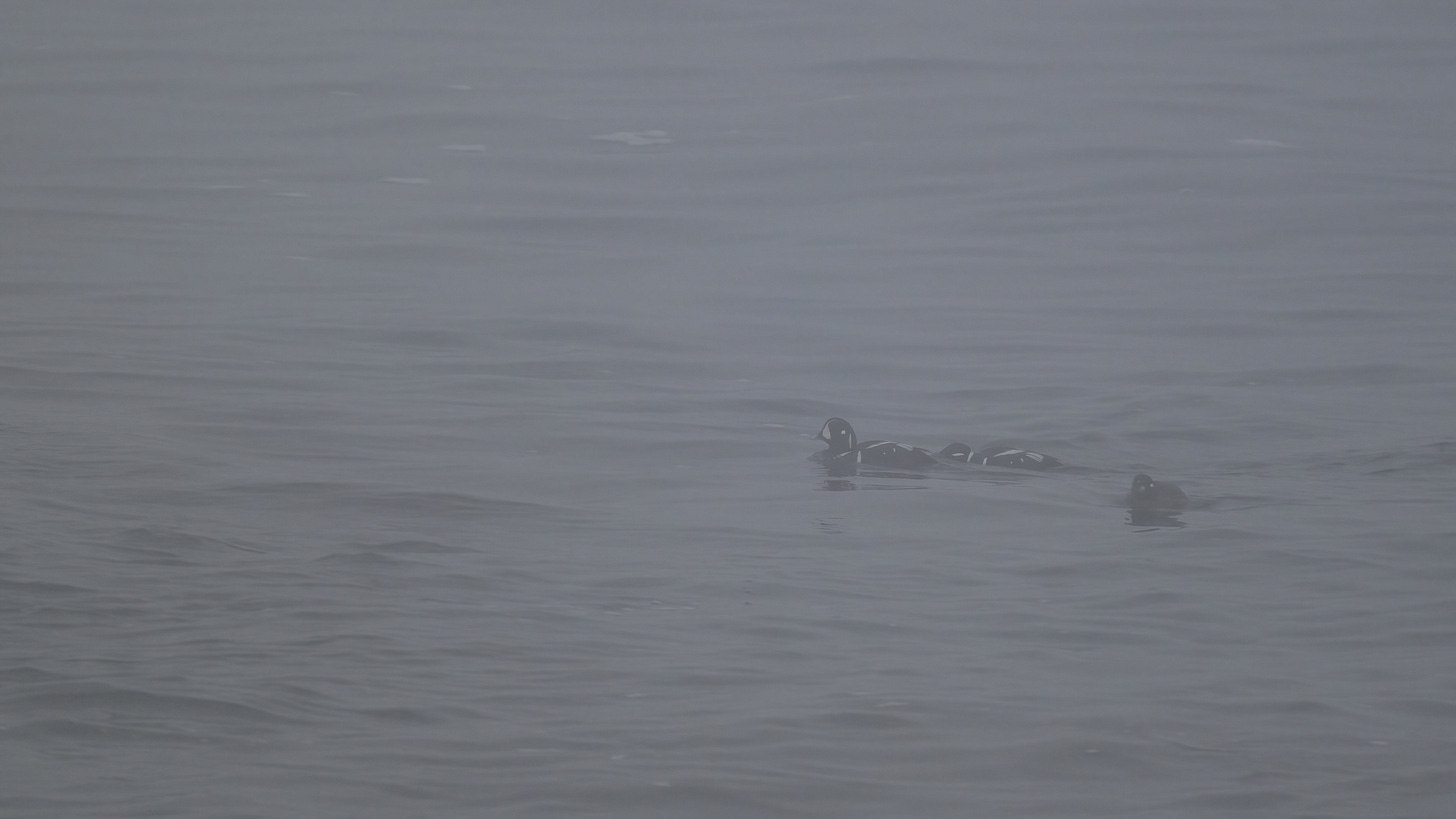


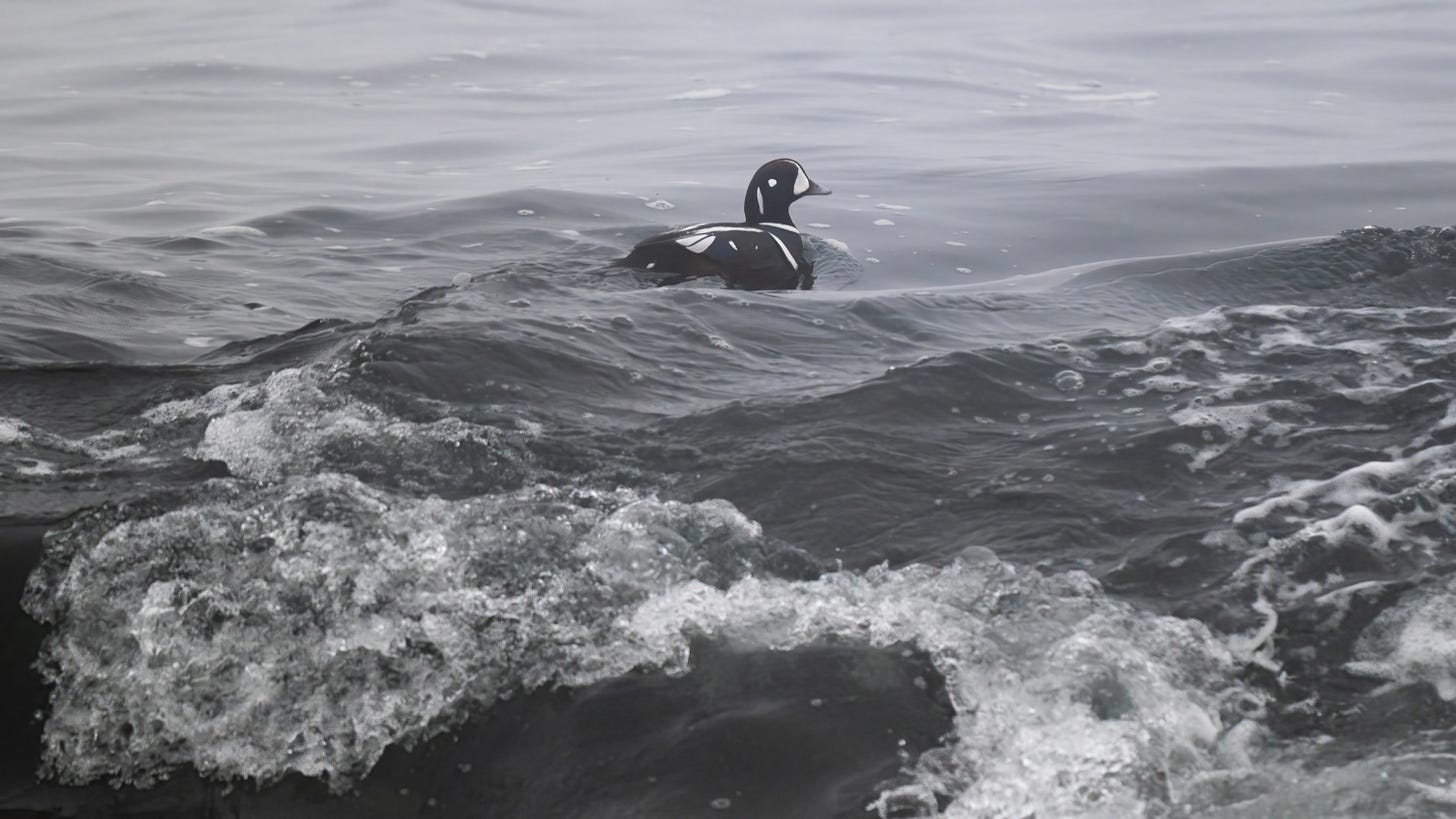


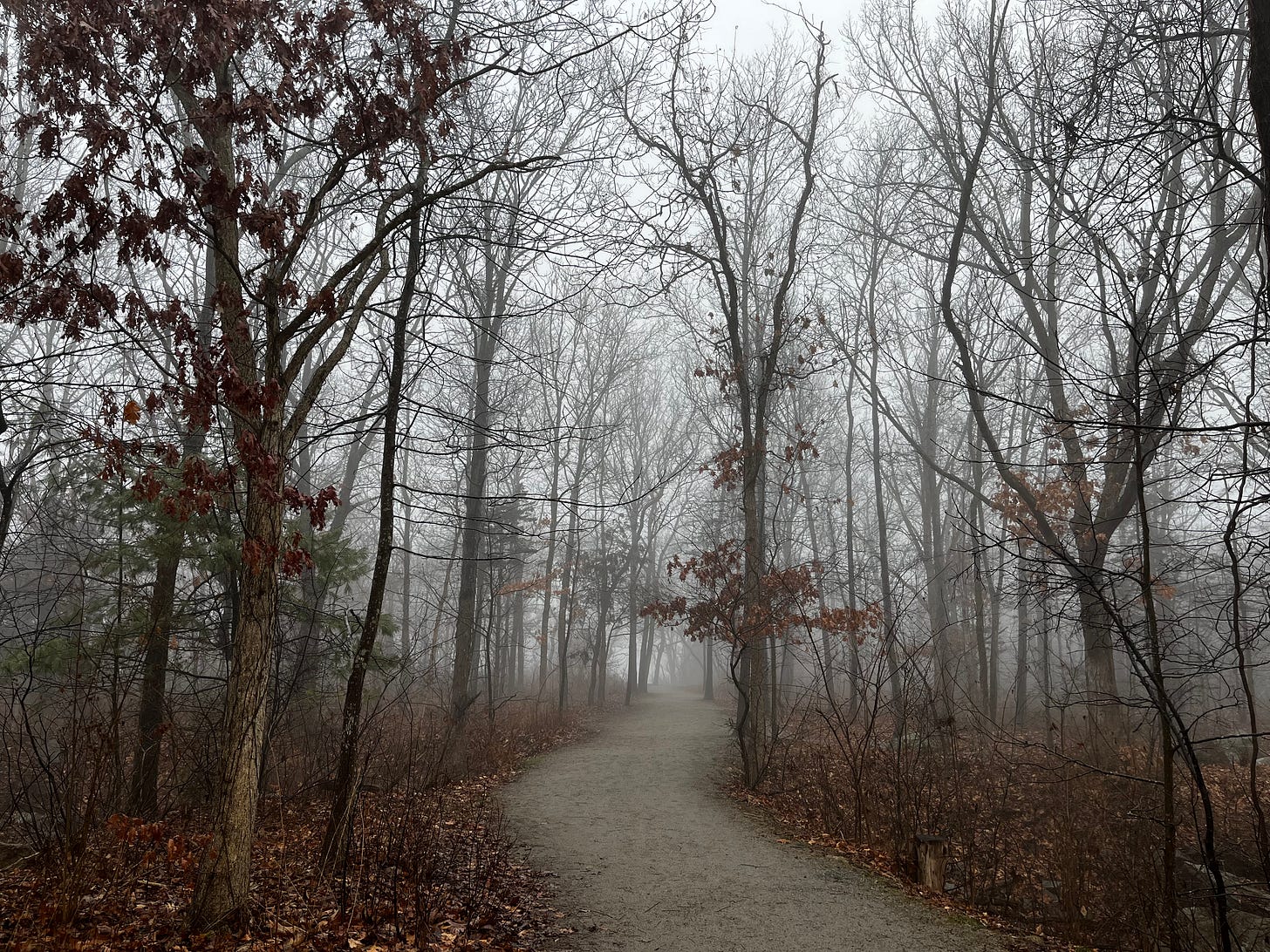
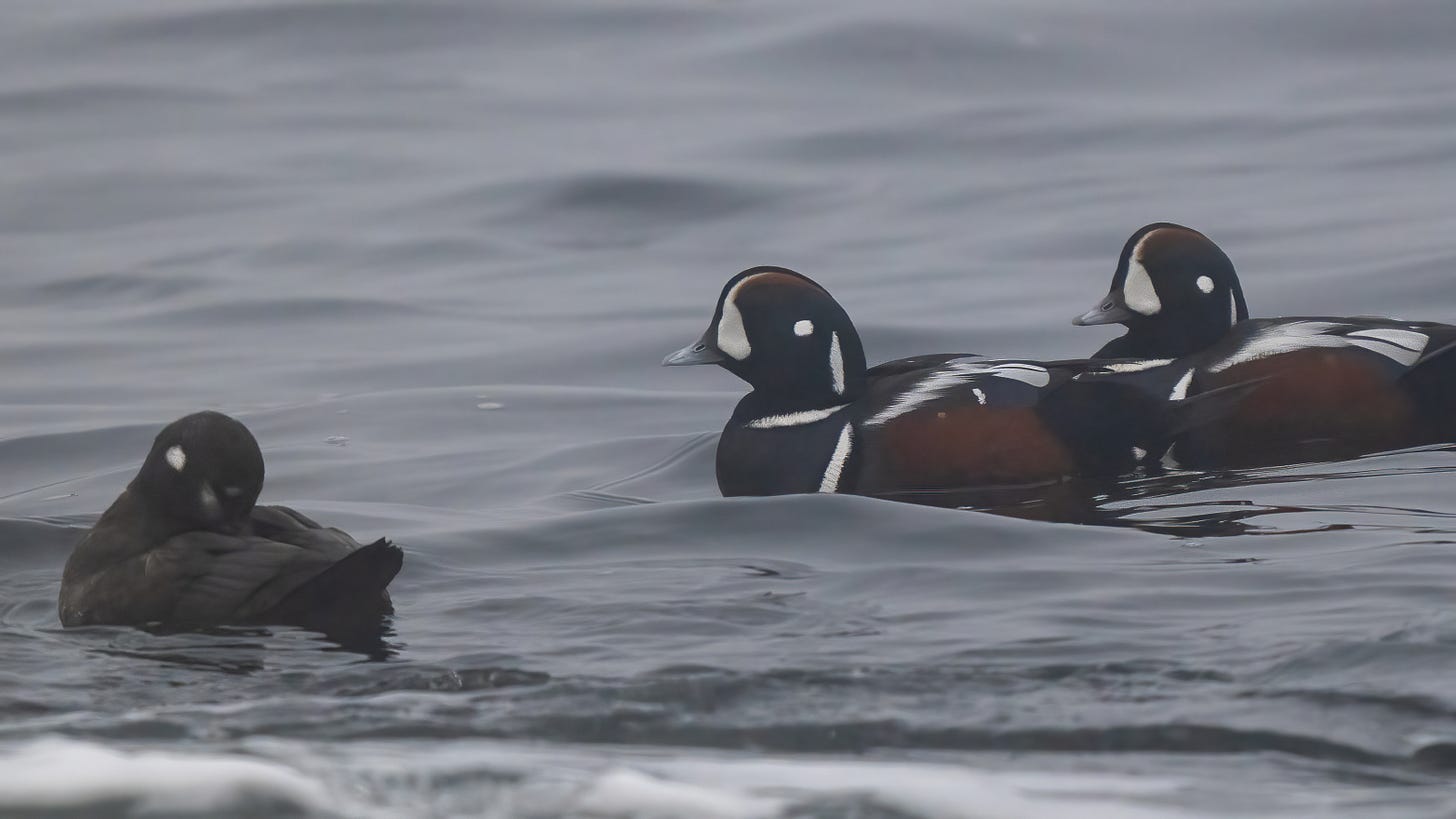
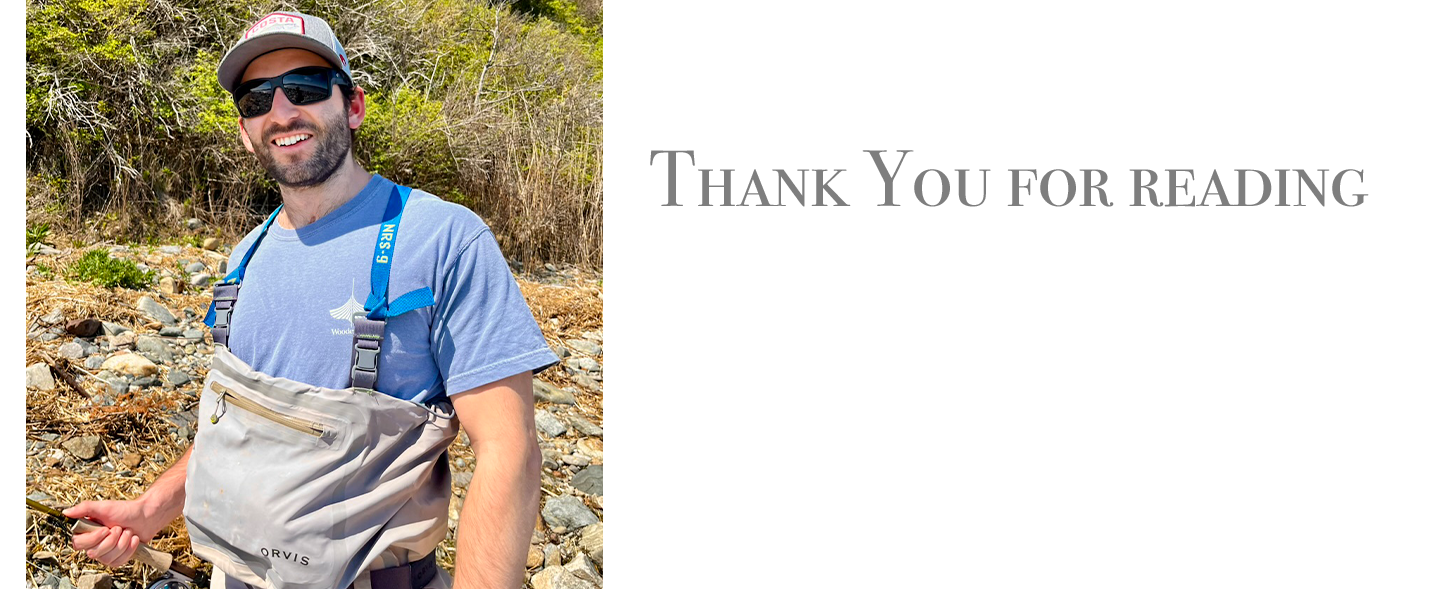
“There’s something larger than us at work.” For a long time it’s been my nature to assigned meaning to wildlife, to most any animal or bird. So it was easy when tasked with finding a power greater than myself. I appreciate people like you who work hard to rightfully and eloquently elaborate via words and photos the specific details of their existence. There IS certainly something larger than us at work in all of nature. The power of any creature to survive, the innocent and pure way in which they survive gives evidence of something greater than us. Thank you for searching out a little piece to give witness.
I really loved reading this piece, here on new year’s eve. It was a very challenging year (to say the least) and just a few hours earlier I saw my first Wilson’s Snipe bobbing its cute little body looking for worms? at an estuary shore. They’re a bit uncommon where I am, the last sighting in the park in 2023 sent the local birders into a tizzy. I couldn’t help but feel that the next year would be better if this year could end on such a high bird sighting note. Reading this was quite cathartic that someone else felt similarly 😊 Thank you for the lovely piece.